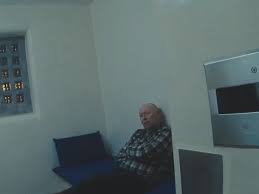Understanding the Derrick Bird Tragedy in Cumbria
Introduction
The tragic events of June 2, 2010, still haunt the quiet community of Cumbria, England. Derrick Bird, a 52-year-old taxi driver, went on a shooting spree that left 12 people dead and 11 others injured across various towns in the area. This shocking incident not only shattered the lives of the victims and their families but also raised urgent questions about gun control and mental health support in the UK.
The Events of the Day
On that fateful day, Bird embarked on what would be remembered as one of the deadliest mass shootings in British history. Armed with a shotgun and a .22 calibre rifle, he began his attack in the small village of Rowrah and moved on to other nearby locations. His victims varied widely—from friends and acquaintances to complete strangers—highlighting the random nature of his violent outburst.
Impact on Families
The aftermath of the shooting resulted in profound grief and confusion for the families affected. The victims ranged in age from 23 to 64, and their untimely deaths resonated deeply throughout the community. The support services for those who lost loved ones faced unprecedented demands, as many grappled with trauma and loss. The incident triggered a wave of community support, with vigils held and funds raised to assist the families of those killed or injured.
Public and Media Reaction
The news of Derrick Bird’s rampage dominated headlines for weeks. Media outlets delved into his background, unearthing a mix of personal struggles, including a reported history of being bullied and difficulties in his professional life. The investigation highlighted Bird’s mental health issues, pointing to the importance of accessible mental health care and identifying potential warnings before such incidents occur.
Gun Control Debate
In the wake of the massacre, discussions intensified around gun control laws in the UK. The country already had strict regulations regarding firearm ownership, but Bird’s ability to legally obtain his weapons raised concerns among lawmakers and citizens alike. Advocates for stricter controls emerged, arguing that the system needed reforms to prevent similar tragedies in the future.
Conclusion
The Derrick Bird shooting remains a poignant reminder of the complexities of human behaviour and societal safety. While it highlighted significant shortcomings in mental health support and gun control, it also brought communities together in the face of tragedy. As the legal system and public policies continue to evolve in response to such events, the lasting significance of this tragedy compels ongoing discussions about safety, mental health, and community resilience. Understanding the impact of Derrick Bird’s actions is crucial in paving the way toward a more secure and empathetic society.









